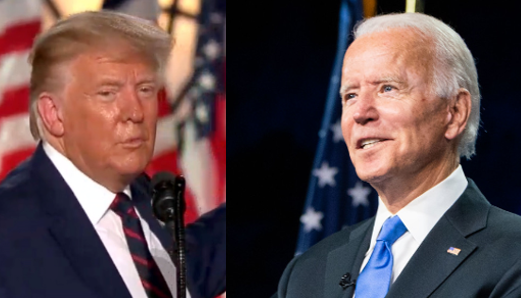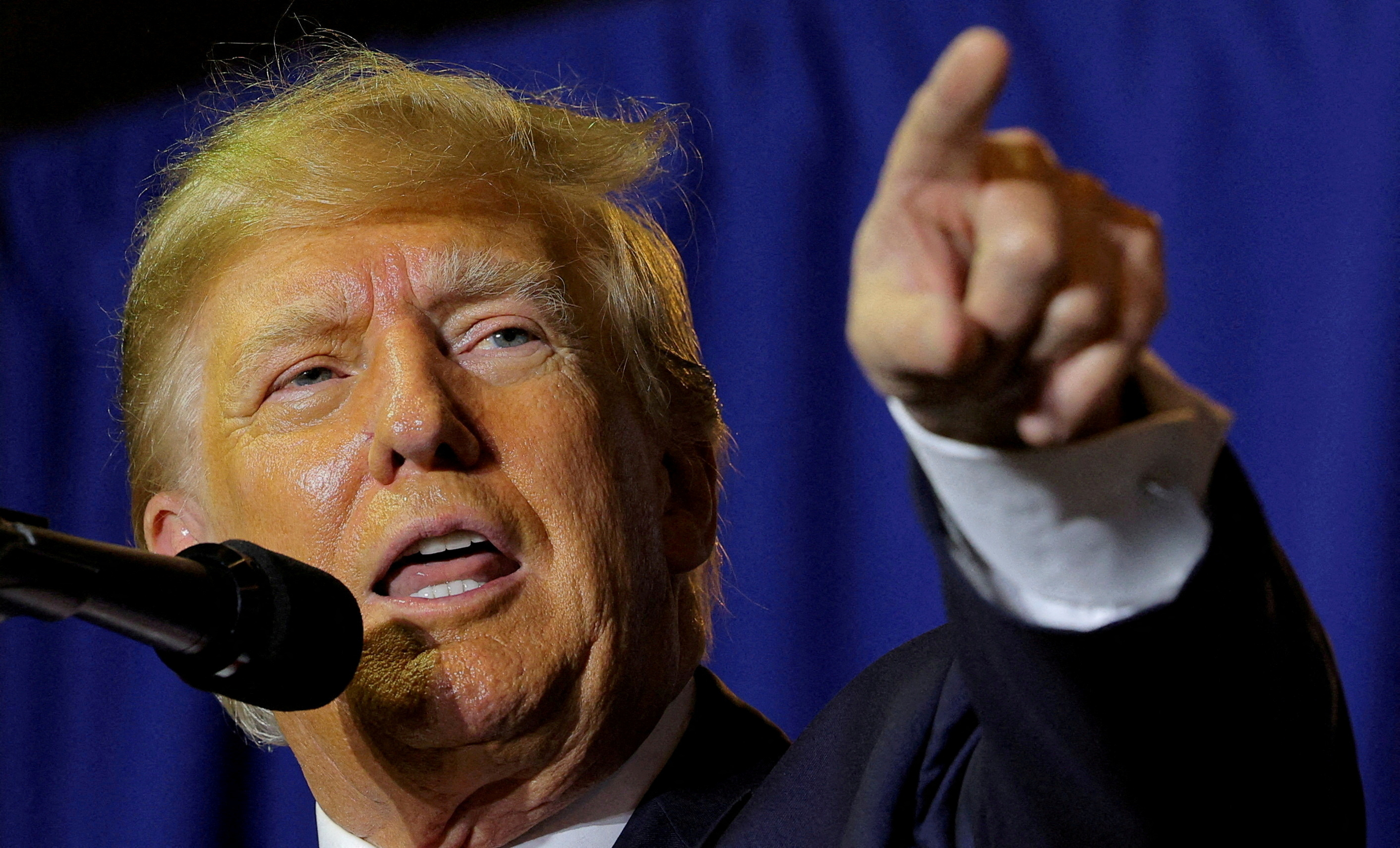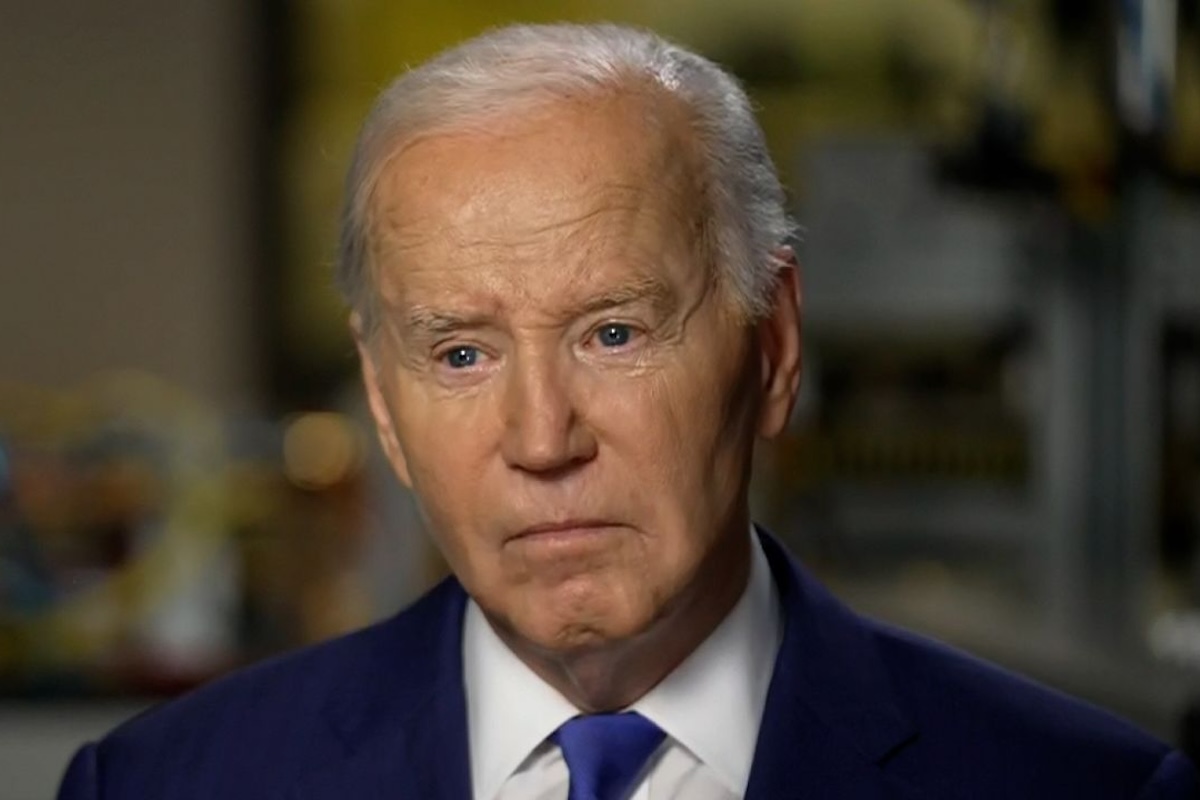HIGH STAKES DEBATE: Here are 5 questions Israelis will be asking when Trump & Biden take stage
Polls show Israeli support for Trump is rising, and Israeli disappointment in Biden growing

WASHINGTON, D.C. – When current U.S. President Joe Biden and former President Donald J. Trump take the debate stage in Atlanta, Georgia tonight, most Israelis will be asleep.
After all, the high-stakes debate begins at 9 p.m. EST on CNN.
That’s 4 o’clock in the morning in Israel.
Nevertheless, Israelis will be paying close attention when they wake up.
Why?
Because Israelis believe that whoever becomes the next American president and commander-in-chief will have a direct and profound effect on their lives.
They’re right.
Here, then, are five questions for which I believe all or most Israelis will be looking for answers.
First and foremost, “Who is most likely to win in American presidency in November?”

It’s all speculation, of course, but with this oddly early debate – the earliest in the history of American politics given that presidential debates usually don’t occur until September and October – Israelis will start to take the measure of both men and their prospects for victory.
As they begin paying attention to the latest polling, Israelis will likely be surprised to find that one of the most respected pollsters and political analysts in the U.S. says the race between Biden and Trump is not a “tossup” as most pundits are claiming.
He says Trump is decisively ahead.

Nate Silver, the former New York Times chief polling analyst, just published an intriguing column titled, “The presidential election isn't a toss-up. As our model launches, either Biden or Trump could easily win — but the odds are in the ex-president’s favor.”
It’s especially intriguing because Silver is candid that he doesn’t want Trump to win – he wants Biden to win – but all the data that he is putting into his propriety computer model is telling him that the odds are increasingly in favor of Trump winning.
“When the model was finally done on Sunday night, it turned out that Trump was favored by a slightly larger degree than I’d anticipated,” Silver noted.
“Although Biden retains highly viable paths to victory….the reasons that Trump would win have gradually become somewhat more compelling than the reasons for Biden,” Silver added.
He noted, for example, “Biden has the lowest approval ratings of anyone running for re-election since either George H.W. Bush or Jimmy Carter, depending on how you squint at the numbers.”

“There’s Biden’s age, which voters have extremely persistent concerns about,” he added. “There’s the very high inflation of mid-2021 through mid-2023 – which has considerably abated, but still is reflected in much higher prices than when Biden took office.
There’s the fact that the global mood is pessimistic and that incumbents have been getting crushed everywhere around the world. Plus, some of the factors I thought would be an advantage for Biden haven’t proven to be. There’s less of a fundraising gap than I expected, for instance, and I’m not sure that Biden has run the smarter tactical campaign.”
Silver noted that Trump is actually leading in most of the “swing states,” that is, states that, like a pendulum, sometimes swing to the Republican candidate and other times swing to the Democrat.
“If Biden loses Georgia, Arizona and Nevada – and he trails badly in each – he’ll need to win all three of Michigan, Wisconsin and Pennsylvania and not just one of them,” Silver points out, increasingly skeptical that Biden can pull that off.
“If we’re being honest, pundits who obsess over whether Biden is 1 point ahead or behind in national polls are kind of missing the point. Because national polls being tied don’t make for a toss-up race – but instead one where Trump has a material advantage in the Electoral College.”
Second, “Who is most likely to stand firmly and decisively with Israel in all the wars and challenges we are facing?”
Let’s be honest with two facts.

1. Israelis overwhelmingly regarded Mr. Trump as the most pro-Israel president in American history, given his recognition of Jerusalem as Israel’s eternal capital, his move of the U.S. Embassy to Jerusalem, his recognition of the Golan Heights as sovereign Israeli territory, and the Abraham Accords, to name just a few.
2. Israelis liked Biden before October 7th – 68% of Israelis said they had confidence in him in the summer of 2023 – and were then very grateful to Mr. Biden that he flew Air Force One to Tel Aviv in the early weeks of the Gaza war and provided so much emotional solidarity, political and diplomatic support, and military aid (weapons, ammunition, and rocket interceptors) in the early months of the war.
Now, let’s be honest with a third fact: Israelis are increasingly frustrated with, even angry with, Biden for weakening his support for Israel in recent months and 60% now disapprove of how Biden is handling the Gaza war.

This includes 53% of Israeli Jews and 86% of Israeli Arabs, who don’t like Biden’s handling of the current conflict, according to a Pew Research survey released in May.
Israelis don’t like Biden’s decision to block some weapons transfers and slow down others; his immense pressure on Israel to accept a “permanent ceasefire” in Gaza that would leave Hamas intact rather than push for “total victory” that would vanquish Hamas’ military capacities once and for all; his immense pressure on Israel not to retaliate decisively after the Iranian regime launched 320 missiles and suicide drones at Israel in April, as well as his immense pressure on Israel not to “escalate” the situation with Hezbollah in Lebanon when it’s Hezbollah that’s increasing their attacks on Israel each and every week.
Today, I suspect Trump is doing even better among Israelis, but we haven’t seen any new polling data on this since March.
Third, “Will the two candidates be asked about the war in Gaza, the much larger war that seems to be coming with Hezbollah in Lebanon, the Iran nuclear threat, and the prospect of an historic Saudi-Israeli peace deal, and what will they say?”
God only knows what the CNN anchors are going to ask.
Maybe they will stick to economic matters (inflation, gas prices, housing prices, jobs, etc.) and domestic issues (abortion, immigration, crime, etc.)
But if questions related to the Middle East – and surging antisemitism in the U.S. and around the world – Israelis will definitely be looking closely at how the candidates answer and what that reveals about their values and priorities.
Israelis know that Americans are also increasingly unhappy with Biden’s handling of the Gaza war.
That’s not just instinctual – it’s data-driven.
“The latest Harvard CAPS/Harris poll found Biden with a 36 percent job approval rating on the [Gaza] conflict, down from 39 percent last month and 44 percent back in October, when the question was first posed,” reports The Hill, a Washington, D.C.-based newspaper that closely tracks events in Congress and the White House.
If the candidates are asked about Middle East matters, will their answers reinforce the growing concerns that Israelis and Americans have about Biden, and serve to help Trump?
Or will Biden surprise everyone by sounding more pro-Israel than he has in recent months?

One area of sharp contrast between the two candidates: Biden is pushing aggressively for Israel to agree to a two-state solution and the creation of a sovereign Palestinian state, while Trump says he is rethinking his support for a two-state solution in the aftermath of October 7th.
Fourth, “Is Joe Biden too old and weak to serve another four years as President of the United States?”
An astonishingly 86% of Americans say that Biden – now 81 years old – is simply too old to serve another four years, according to an ABC News poll.

Then again, 62% say Trump – who turned 78 on June 14 – is also too old.
Will something happen during the debate tonight to reinforce or upend those views?
Fifth, “Do Donald Trump’s 34 felony convictions, and his conduct on Jan. 6, 2021, disqualify him to serve for another four years as America’s Chief Executive?”
Americans are certainly heading into uncharted waters.
Never before has any presidential candidate been convicted of any crime.
Yet recently, Trump was convicted by a New York jury of 34 state-level felonies.
That said, most Americans are telling pollsters they don’t think this is a serious problem and isn’t a key factor in their decision-making process.
A new poll released this month “found that 55 percent said Trump's conviction in his New York hush-money trial was ‘not a factor’ in their vote – with 17 percent saying it was a ‘minor factor’ and 28 percent considering it a ‘major’ influence,” reported Newsweek on June 10th.
Will those views change over time?
How will independent voters – and undecided voters in critical swing states – view Trump’s felony convictions when they enter the polling booth in November or send in their absentee ballots early?
Will Biden be able to convince such voters that Trump’s convictions and conduct on Jan. 6 disqualify him from serving as president?
Or will Biden’s age and weaknesses – personally, cognitively, on the economy, on illegal immigration, and on the world stage – offset Trump’s liabilities?
No one knows.
I certainly don’t know.
But I have no doubt that some Israelis will be watching especially in tonight’s debate – and in the months ahead – will be watching Trump closely, and listening closely to his answers, to decide for themselves.

Joel C. Rosenberg is the editor-in-chief of ALL ISRAEL NEWS and ALL ARAB NEWS and the President and CEO of Near East Media. A New York Times best-selling author, Middle East analyst, and Evangelical leader, he lives in Jerusalem with his wife and sons.
You might also like to read this:














